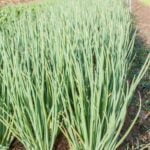Fire ants can be a persistent and damaging threat to vegetable gardens, causing harm to both plants and humans. These invasive pests can quickly establish colonies in the garden soil, disrupting the delicate ecosystem and posing a risk to anyone working or enjoying the garden. Understanding the behavior and life cycle of fire ants is crucial in effectively managing their presence in vegetable gardens.
As summer approaches, fire ants become more active, making it essential for gardeners to be aware of the signs of infestation. From small mounds of soil to aggressive behavior when disturbed, recognizing these indicators early on can help prevent widespread damage to your precious vegetable plants. Additionally, being informed about the dangers that fire ants pose not only to plants but also to humans is necessary for taking appropriate action against them.
In this article, we will explore various natural and chemical methods for controlling fire ant populations in vegetable gardens. By sharing successful strategies and prevention techniques used by experienced gardeners, we aim to equip readers with valuable insights on managing fire ants effectively. Let’s delve into the world of fire ants and learn how to safeguard our vegetable gardens from their destructive impact.
The Life Cycle of Fire Ants and How It Impacts Vegetable Gardens
Fire ants are notorious pests that can wreak havoc in vegetable gardens, causing damage to both plants and humans. Understanding the life cycle of fire ants is essential in effectively managing their presence in vegetable gardens. Fire ant colonies typically consist of a queen, workers, and male ants. The queen is responsible for laying eggs, while worker ants gather food and protect the colony.
Impact on Vegetable Gardens
The presence of fire ants in vegetable gardens can have detrimental effects on plant health. These aggressive insects feed on young seedlings, fruits, and even vegetables, causing significant damage to crops. Additionally, fire ant mounds can disrupt the root systems of plants, leading to decreased nutrient uptake and overall stunted growth. Furthermore, fire ant bites can be painful for gardeners working in the garden, making it necessary to address these pests promptly.
Life Cycle of Fire Ants
The life cycle of fire ants consists of four stages: egg, larva, pupa, and adult. After the queen lays eggs in the colony, they hatch into larvae that are dependent on worker ants for food. As they develop into pupae, they eventually emerge as adult fire ants ready to take on various tasks within the colony. Understanding this life cycle is crucial for implementing effective control measures to combat fire ant infestations in vegetable gardens.
Signs of Fire Ant Infestation in a Vegetable Garden
Fire ants are known to cause significant damage in vegetable gardens, making it crucial for gardeners to be able to recognize the signs of infestation. One common indicator of fire ant presence is the appearance of small dirt mounds or nests in the garden soil.
These mounds can often be found near plant roots and can cause plants to become uprooted due to their size and weight. Additionally, fire ants are aggressive insects that may sting when disturbed, so any noticeable ant activity around plants should raise concerns.
Another sign of fire ant infestation is damage to plant roots and stems. Fire ants feed on plant sap, which can weaken and eventually kill plants if left unchecked. Gardeners may notice wilting leaves, yellowing foliage, or stunted growth in affected plants. In severe cases, entire plant beds may be decimated by fire ants, leading to substantial losses for gardeners.
To confirm the presence of fire ants in a vegetable garden, one can perform a simple test using a piece of potato or bait that attracts ants. Placing the bait near suspected areas of infestation and observing ant behavior can help determine if fire ants are indeed present. Once a positive identification is made, immediate action should be taken to address the infestation before further damage occurs.
| Signs of Fire Ant Infestation | Impact on Plants |
|---|---|
| Small dirt mounds or nests in soil | Weakening plant roots and stems |
| Agressive ant activity around plants | Plant wilting, yellowing foliage, stunted growth |
The Dangers of Fire Ants to Both Plants and Humans
Fire ants pose a significant threat to both plants and humans in vegetable gardens. These invasive pests can cause damage to crops, leading to stunted growth and decreased yields. Additionally, their presence can also create safety concerns for gardeners as their painful stings can result in allergic reactions in some individuals. It is essential for gardeners to understand the risks associated with fire ants and take steps to protect both their plants and themselves from these troublesome insects.
To help you better understand the dangers of fire ants in vegetable gardens, here are some key points to consider:
- Plant Damage: Fire ants are known to feed on young seedlings, roots, and fruits of vegetable plants, causing significant harm. Their foraging behavior can lead to wilting, yellowing leaves, and even plant death.
- Human Health Risks: The stings of fire ants can be painful and potentially dangerous for those who are allergic. In severe cases, they can cause anaphylaxis, a life-threatening reaction that requires immediate medical attention.
- Contamination: Fire ant nests in vegetable gardens can also lead to contamination of produce. These insects may introduce harmful bacteria or pathogens that could pose health risks if consumed.
It is crucial for gardeners to be vigilant about monitoring fire ant activity in their vegetable gardens and taking proactive measures to control their populations effectively. By being aware of the potential dangers associated with these pests, gardeners can implement strategies to mitigate the risks and ensure a healthy growing environment for their plants while also safeguarding their well-being.
Natural Methods to Control Fire Ant Populations in Vegetable Gardens
When faced with a fire ant infestation in your vegetable garden, it is crucial to explore natural methods of controlling these aggressive pests. Not only are natural solutions often safer for both the environment and humans, but they can also be effective in managing fire ant populations without resorting to chemical interventions. Here are some natural methods that gardeners can implement to combat fire ants:
- Boiling water: Pouring boiling water directly onto fire ant mounds can effectively eliminate a significant portion of the colony. This method suffocates the ants and disrupts their habitat, leading to their eventual demise.
- Diatomaceous earth: This natural powder is composed of crushed fossils that have sharp edges, which puncture the exoskeleton of fire ants upon contact. Sprinkling diatomaceous earth around garden beds and near ant mounds can help deter and kill these pests.
- Beneficial nematodes: Introducing beneficial nematodes into the soil can be an effective biological control method against fire ants. These microscopic organisms infect and kill ants within their colonies, reducing their numbers over time.
While chemical pesticides may offer quick results, they often pose risks to beneficial insects, wildlife, and even the vegetables being grown. By utilizing natural methods like boiling water, diatomaceous earth, and beneficial nematodes, gardeners can effectively manage fire ant populations in their vegetable gardens while minimizing harm to the ecosystem.
Remember that persistence and consistency are key when using natural methods to control fire ants in vegetable gardens. By incorporating these approaches into your gardening routine and regularly monitoring for signs of reinfestation, you can maintain a healthy balance in your garden without relying on harmful chemicals. With patience and dedication, it is possible to successfully combat fire ants and protect your vegetables from these invasive pests.
Chemical Options for Eradicating Fire Ants From Vegetable Gardens
Another chemical option for controlling fire ants in vegetable gardens is direct mound treatments. These treatments involve applying insecticides directly onto individual ant mounds to kill the ants on contact. However, it is crucial to identify all active mounds in the garden for this method to be effective. Moreover, it is advisable to use insecticides that are specifically labeled for use in vegetable gardens to avoid any harm to edible produce.
When using chemical options for eradicating fire ants from vegetable gardens, it is essential to follow the instructions provided by the manufacturer carefully. Protective gear such as gloves and masks should be worn while handling chemicals, and it is advisable to keep children and pets away from treated areas until it is safe. Additionally, regular monitoring of the garden after treatment is vital to ensure that fire ant populations are effectively controlled.
| Chemical Options | Eradicating Fire Ants |
|---|---|
| Insecticide Bait | Effective in eliminating entire colonies |
| Direct Mound Treatments | Kills ants on contact but requires proper identification of active mounds |
Prevention Techniques to Keep Fire Ants Away From Vegetable Gardens
Regularly Inspect Your Garden
One of the most important prevention techniques to keep fire ants away from vegetable gardens is to regularly inspect your garden. By regularly checking for any signs of fire ant activity, such as ant mounds or damage to plants, you can catch the infestation early on before it becomes a major problem. This allows you to take action quickly and prevent the ants from establishing a strong presence in your garden.
Remove Attractants
Another effective way to keep fire ants away from your vegetable garden is to remove any attractants that may draw them in. Fire ants are attracted to sugary substances, so make sure to clean up any spilled food or drinks in your garden. Additionally, keep compost piles covered and eliminate standing water sources, as these can also attract fire ants. By removing attractants, you can reduce the likelihood of fire ants making your vegetable garden their home.
Create Physical Barriers
Creating physical barriers around your vegetable garden can also help prevent fire ants from invading. You can use materials such as diatomaceous earth, cinnamon powder, or coffee grounds to create a barrier that fire ants are less likely to cross. These natural deterrents are safe for plants and can help protect your vegetables from fire ant infestations. Consider placing these barriers around the perimeter of your garden or individual plant beds for added protection against fire ants in vegetable gardens.
By incorporating these prevention techniques into your gardening routine, you can effectively keep fire ants away from your vegetable garden and enjoy a thriving crop without the nuisance of these pests. Being proactive in preventing fire ant infestations will save you time and effort in dealing with potential damage caused by these invasive insects.
Success Stories From Gardeners Who Have Effectively Dealt With Fire Ants in Their Vegetable Gardens
Fire ants can be a persistent and troublesome pest in vegetable gardens, causing damage to both plants and potential harm to humans. However, many gardeners have successfully managed fire ant infestations in their vegetable gardens through various methods.
One common success story involves the use of natural remedies such as diatomaceous earth or boiling water to control fire ant populations. By sprinkling diatomaceous earth around the garden beds or pouring boiling water directly into ant colonies, some gardeners have effectively reduced the number of fire ants present in their vegetable gardens.
Another success story comes from gardeners who have employed beneficial insects like parasitic nematodes to combat fire ants. These microscopic organisms feed on fire ant larvae, ultimately reducing the overall population in the garden. By introducing these helpful predators into their vegetable gardens, some gardeners have seen a significant decrease in fire ant activity and damage to their crops.
In addition to natural remedies, some gardeners have found success in managing fire ants by using chemical options specifically designed for eradicating these pests. Products containing spinosad or bifenthrin are commonly used to effectively control fire ant populations in vegetable gardens. When applied according to instructions and safety guidelines, these chemical treatments can help to eliminate fire ants and protect vegetable crops from further damage caused by these aggressive insects.
Conclusion
In conclusion, it is crucial for gardeners to be aware of the threat that fire ants pose to their vegetable gardens. The life cycle of fire ants can have a detrimental impact on the health of plants, leading to reduced yields and even plant death. Signs of fire ant infestation, including visible mounds and aggressive behavior, should not be ignored as they can quickly spread throughout the garden.
The dangers of fire ants extend beyond just plants as they can also pose a risk to humans with their painful stings. Therefore, it is essential to take proactive measures to control and eradicate fire ant populations in vegetable gardens. While chemical options are available for immediate relief, natural methods such as using diatomaceous earth or introducing beneficial nematodes can help manage fire ants in a more sustainable manner.
By implementing prevention techniques such as keeping the garden clean and free of debris, regularly inspecting for signs of infestation, and creating physical barriers like moats or tapes around plants, gardeners can effectively keep fire ants at bay. Success stories from experienced gardeners prove that with diligence and the right strategies in place, it is possible to manage and prevent fire ant infestations in vegetable gardens successfully.
Frequently Asked Questions
Are Fire Ants Bad for Vegetable Gardens?
Fire ants can be detrimental to vegetable gardens as they can damage roots, cause stunted growth, and attack young plants. Their painful stings can also be harmful to gardeners tending to their plants.
Should I Worry About Ants in My Vegetable Garden?
Ants in a vegetable garden may not always be a cause for concern, as some species are harmless and even beneficial. However, if there is an infestation of fire ants or other aggressive species, it’s essential to address the issue promptly.
How Do I Get Rid of Fire Ants in My Garden Without Killing Plants?
To get rid of fire ants in a garden without harming plants, there are several natural methods that can be effective. For example, using boiling water or diatomaceous earth can help eliminate ant mounds without causing damage to the surrounding vegetation. Additionally, introducing beneficial nematodes or using ant baits specifically designed for fire ants can help control the population effectively.

If you’re looking to get into vegetable gardening, or are just looking for some tips on how to make your current garden better, then you’ve come to the right place! My name is Ethel and I have been gardening for years. In this blog, I’m going to share with you some of my best tips on how to create a successful vegetable garden.





